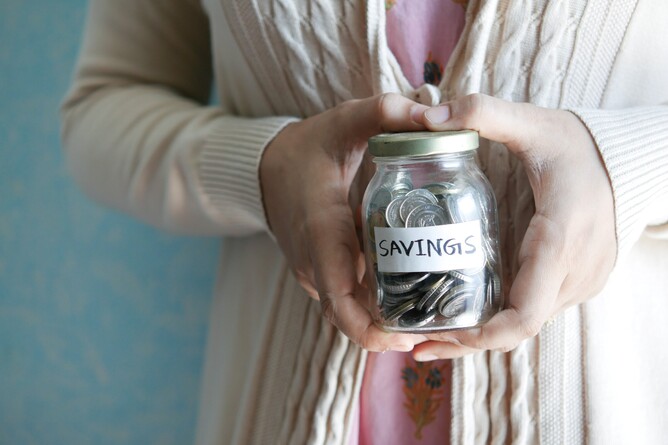Rental Properties
The Government has made it pretty clear that the good ol’ days of buying a rental property, claiming the interest and depreciation to get losses, and receiving tax refunds to help pay down the mortgage are over.
No longer is interest deductible unless the house was built after March 2022. (For existing rentals the final year of interest deductibility is 2025).
No longer can the house be depreciated.
No longer can a rental loss be offset against other income enabling you to receive a tax refund.
Now its more likely you will pay tax on your rental income….and if you buy and sell within 10 years you are also likely to pay tax on any capital gain.
For those of us wishing to get set up for retirement are rental properties still the way to go? If not, what else is available?
Rental properties still have their place. Many people find it easier to pay off debt than to save – and a rental property is great for this. While rental returns are not great when compared to other investments, the capital gain generally enjoyed by property improves the returns depending on the timing of the market. However if you are thinking to buy a rental property, it pays to budget to ensure you can carry the mortgage through periods of interest rate fluctuations or no rental income should the tenants leave and it takes a while to replace them.
Government policy means that rental properties should be held for at least 10 years to fall outside of the current capital gains rules.
The downside of rental properties as an investment is being able to access your “savings”. You cannot sell a door or window to free up some cash. Rental properties are an all or nothing type of investment. To access the cash, you need to sell the property. So when you hit retirement age, it might be the time to sell the rental so you can access the cash. You also have to deal with tenants either directly or indirectly.
So, what else is there?
Term Deposits
For many people the term deposit is a safe option. Our banks seem very secure, the interest rates are currently not too bad, and a term deposit is easy to take out. You only need around $5,000 to start and can add and build to this as you go.
In a time of inflation, you may find the interest you receive on the term deposit is less than the loss of buying power the term deposit has from one year to the next. If inflation is 7% and the interest rate 5%, you have actually lost 2% in value. Not ideal if we’re looking to build wealth to look after ourselves in our golden years.
The security of term deposits is their strength. You know your money is as safe as possible.
Shares
Shares are often seen as risky. Publicly listed companies have collapsed losing the savings of a great number of hard-working folk in the process. Despite the higher risk, shares are still a good option when considered as part of an overall investment strategy which has been tailored to your personal risk profile.
Investment advisors strongly promote spread. The goal is to have shares in many companies, covering a range of industries, countries, and riskiness. Given most of us don’t have the time or the ability to research and understand that many companies and how safe they are, it makes sense to work with the professionals. Hence the advantage of building a long term relationship with a good investment advisor who has all the up to date research at their fingertips.
Investment advisors will select a range of shares to balance different economic conditions and tailor a portfolio that recognises your age and stage. For those lucky enough to have plenty of work years to come, the investment advisor might select riskier options that offer greater rewards. For those who are in their golden years, protection of capital becomes more important. The risk gets traded for safer, more secure options as your ability to rebuild capital or wait out tougher economic times is much less.
Bonds
Another advantage of an investment advisor is they have access to the bond market (bonds pay out interest like a term deposit but can be traded) which offers premium interest rates compared to term deposits. Bonds are issued for longer terms, say 5 – 10 years, and the interest rate offered on issue remains at that rate for the term of the bond. They offer the ability to sell on the bond market earlier than the maturity date if cash is required. The market will dictate the value of the bond which may be more or less than the initial investment, often depending on the bond’s interest rate.
Kiwisaver
Your kiwisaver investment will generally be a mix of shares and bonds, tailored to the risk level you’ve elected. If you’re employed and aged between 18 and 65, your employer will be adding to your contributions at 3% of your gross wage. You will receive a government subsidy for the fees, and a government contribution up to $520 p.a. Websites like “Get Sorted” compare the performance of the various funds offered by fund providers annually so you can see how your elected provider fares against the other providers. If you’re a first home buyer you can access your kiwisaver for a home deposit, but generally the fund is locked until you reach 65.
Once you sign up for kiwisaver then it is compulsory to contribute out of your wages, unless you have successfully applied for a contributions holiday. You can elect to make contributions to your kiwisaver at any time, over and above your wage contribution. This may be one way you invest in an investment portfolio. It is worth reviewing the performance of your fund provider every few years at least to ensure your kiwisaver portfolio performance matches that of comparable funds.
Syndicated Property
There are other options available for those seeking greater returns, and willing to take greater risks. Syndicated property investments allow investors to co-own a sizable commercial property. Its important to understand the greater return these structures offer are due to the greater level of risk, and the investment is less easily traded. But there are a good number on offer and for those interested in commercial property this is one alternative. Like anything, some expertise in property valuation and expected market returns from your advisors may be critical in assessing if these investments are a good fit for you.
Keeping a Mix
As we move to retirement it makes sense to have our money tied up in a way that it keeps pace with inflation, keeps the capital protected and enables us to draw out the money as and when we want it. Both shares and rental properties tend to do well at keeping up with inflation. Term deposits and bonds protect capital. Shares and bonds are easily and quickly converted to cash which can be withdrawn. By holding a mix of investments you can ensure you cover all the bases.
Summary
Rental properties good for paying down debt if saving isn’t your strength. Risk is it’s a big investment and you are locked in so you need to be sure you can carry the mortgage.
Shares are good for keeping up with inflation, and holding a range spreads the risk. However their value could go down if the company doesn’t perform well, so capital is not guaranteed.
Term deposits keep capital safe and are easy to set up. Risk is the interest you receive is less than inflation, so your money loses value.
Bonds also keep capital safe and often offer a premium interest rate. Risk is bonds are longer term so interest rate increases can leave you with bonds with lower rates and several years to run.
Kiwisaver offers the chance to consistently add to your savings via your wages, and have those savings looked after by the experts in a range of investments tailored to your elected “risk and return” profile. The funds are locked until you reach 65, and it is worth comparing the performance of fund providers every few years.
Syndicated property enables you to co-own a commercial property and generally offers a good return. Investment is a higher risk and getting your capital back can take time while a buyer is found for your share.
Investing is a specialist area and its worth consulting an advisor to get yourself in a great position for retirement.
We are lucky to have a range of good quality investment advisors in New Zealand – and in Whangarei.
If you would like to discuss your investment options call us for a chat. We can’t assist with specific investment advice, but we can certainly put you in touch with those that can.

